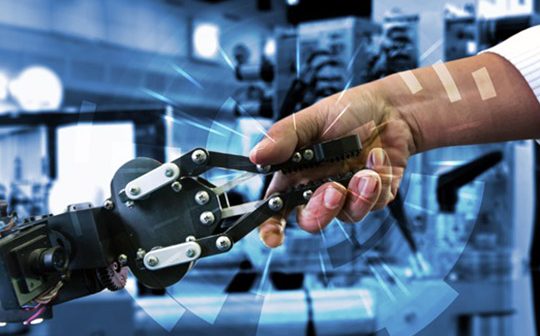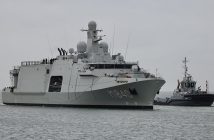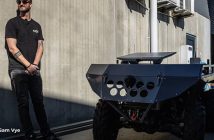
Exail has launched a research internship partnership with South Australia’s Flinders University, focused on deepening understanding of maritime autonomy and robotics.
The partnership, forged under the leadership of Exail’s Marine Data Processing Product Manager Sébastien Tauvry and Flinders University’s Professor of Maritime Autonomy Karl Sammut, promises innovative research opportunities and hands-on experiences for students.
Flinders University Masters student Jeremy Wojak has headed to the west coast of France this week to begin a 6-month internship working alongside Tauvry and his team at Exail’s Brest facility in Brittany. The internship also involves ENSTA Bretagne, Brittany’s world-class engineering school.
“This collaboration further solidifies Exail’s commitment to strengthening ties with Australian universities and opens doors for real-world maritime domain experience and research with us,” said Tauvry.
“We’ve had a strong link with ENSTA Bretagne for many years, working with their leadership and students on research and development.
“We know that Flinders University is also dedicated to advancing capabilities in underwater vehicles and have been working with them for a few years now, so we are delighted to be moving the relationship forward with this new internship.”
Wojak is sponsored by the Nicolas Baudin Travel Grant, a program designed to encourage Australian students to undertake study, research or professional development in France.
Professor Sammut said the partnership with Exail was an ‘excellent opportunity for research and student development’.
“Working with Exail on underwater vehicle applications aligns perfectly with our focus on advancing maritime autonomy,” he said.
“Flinders University is a university of choice in defence research known for its strong ties to the maritime sector and fostering industry connections.
“Internationally recognised as a leader in Advanced Manufacturing, maritime autonomy, electronic warfare, biofouling, material sciences, human factors, and cybersecurity, Flinders is keen to work with companies offering the opportunity to develop new capabilities that are in Australia’s national interests.”
Tauvry said Exail hoped the partnership with Flinders University would develop over coming years to include technologies related to marine robotics, such as autonomous decision-making and signal processing to understand the environment in which the robot is operating.
“Exail looks forward to a fruitful collaboration that not only advances research but also shares valuable learning experiences for students,” he said.
“We are ready to grow in Australia and eager to work with students who can shape the future of maritime autonomy here in Australia.”






